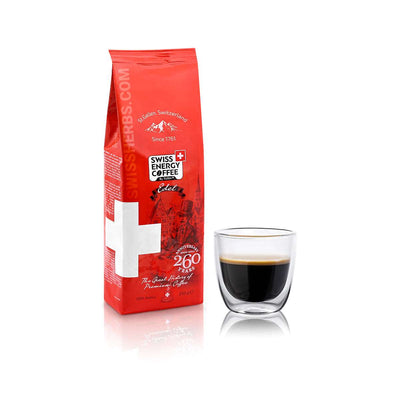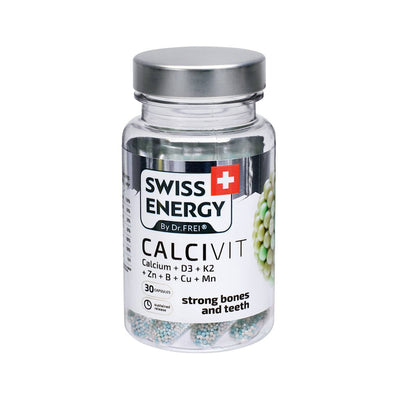How vitamins help with allergy
Allergy is an adverse reaction of the human body to some allergen, which can be of different origins: food, insects, latex, mold, pets, or pollen. According to the latest data, between 10% and 30% of the world’s population is susceptible to various allergies. The WHO says that only allergy-connected asthma affects 235 million people worldwide every year.
Depending on the type of susceptibility, an allergic person might be endangered with its occurrence all year round. Those who suffer from respiratory allergies mainly feel bad in the blossoming and fall seasons, which differ across the globe in months.
An allergy occurs because of the hypersensitivity of the body to external factors, which are actually hundreds if to count them all. The symptoms of allergies manifest themselves in a wide range and include swelling, runny nose, atopic dermatitis (like hives), shortness of breath and anaphylaxis, itchy rash, sneezing, red eyes, and others.
Luckily, though, there are multiple possibilities to evade an allergy, decrease its level, and make it less lasting. They include taking vitamins to help the immune system, refraining from having some allergenic food, having frequent wet cleaning of the house, breathing with cleaner air (for instance, by means of HEPA filtration of the air), undergoing immunotherapy, and even acupuncture. Since the Vitamin and Food Supplement brand Swiss Energy offers the vitamins and supplements, we’re focusing in this article on how you could improve your body’s immunity by taking our Swiss-produced vitamins. The ones we consider here are Vitamin C, B, D, and K.

Vitamin C
Most allergies are caused by excessive input of histamine into the blood flow (which is produced by certain cells of the body as a reaction to an allergen). Vitamin C suppresses the production of histamine, which leads to milder symptoms and s shorter time before allergy passes.
Depending on the age, gender, and some other factors, the recommended daily dose of Vitamin C intake ranges from 15 mg for children 1-3, to 75 mg for women (85 mg for pregnant), and 90 mg for men. However, depending on the doctor’s prescription and the state of health, the daily dose (taken in portions) might increase to 500, 2,000, or even 6,000 mg of it.
In addition to our products, you can scoop this vitamin from such foods as citrus fruits, pepper, strawberry, broccoli, black currant, Brussels sprouts, and others.
Vitamin B
There are 8 types of Vitamin B, altogether contributing to over a hundred biological functions in the human body. The daily dose depends on similar factors as others on the list but additionally — on the type of B vitamin (there are B1, B2, B3, B5, B6, B7, B9, and B12). You can find B1 in the liver, nuts, peas, or wholegrain bread. The daily dose is 0.8 mg for women and 1 mg for men. B2 is found in milk, eggs, yogurt, or mushrooms. The daily dosage is 1.1/1.3 mg for women/men correspondingly. A list of the daily dosages of other vitamin B types is below (in mg):
- B3: 13.2/16.5
- B5: 3/5
- B6: 1.2/1.4
- B7: 0.9/0.9
- B9: 0.2/0.3
- B12: 1.5/1.5.
Note that these doses are given for adults and do not consider individual characteristics of a person’s health, nutrition, living conditions, or ailments — these will all affect the dose configuration.
Generally, Vitamins in the B group contribute to cellular health, brain functions, and energy levels. In other words, you get well faster.
Vitamin D
Vitamin D has a variety of mechanisms for preventing allergies and making milder effects through immune modulation:
- inhibition of production of pro-inflammatory enzyme cytokine
- maintaining nasal mucosa integrity
- inhibition of proliferation of airway smooth muscle cells
- contribution to the balance of lymphocytes
- affecting the adaptive and inhale immunity.
The recommended daily dose of Vitamin D is 10-20 micrograms. However, depending on such factors as age, sun exposure, altitude of living, and others, the dose might be bigger: up to 100 micrograms a day. Apart from our vitamins and supplements, one could find Vitamin D in such foods as oily fish, red meat, egg yolk, liver, or cereals.
Vitamin K
Vitamin K inhibits asthmatic conditions, making the body less susceptible to allergens (they become less irritating for people, in other words). It also facilitates energy production in cells, which is important when a body is weakened by an allergy. As it also protects your cellular membranes from being damaged, which prevents allergens to affect the cells negatively, virtually ‘pushing’ them away from your body on the cellular level, which decreases the allergy’s chances to begin in the first place.
In addition to our Vitamin K offers, you can find it in foods: vegetable oils, cereal grains, and green leafy veggies.
The recommended daily dose is 1 microgram for 1 kg of the weight of a person. That is, for a regular 140-pound person, it will be 65 micrograms of the substance. Remember that 1 microgram is 1,000 times smaller than 1 milligram (mg), so it would be 0.065 mg a day for an adult of 140 pounds in weight.
Conclusion
Allergy is definitely not something unavoidable. You can and should fight it by taking vitamins and food supplements. The Swiss Energy company sells well-balanced, highly effective, and certified products by various brands, suitable for your budget and physical requirements. Explore our offer now to have something for your allergy.



